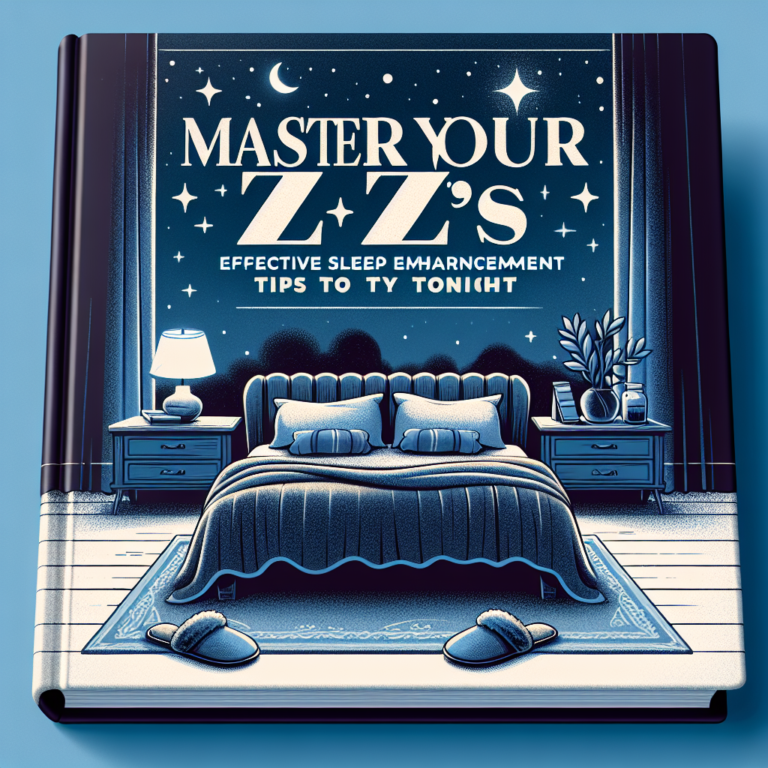We all know how important a good night’s sleep is for our overall health and well-being. Yet, so many of us struggle to get the rest we need and deserve. If you find yourself tossing and turning at night, unable to drift off into a peaceful slumber, it may be time to take a closer look at your sleep habits and make some changes. Here are some effective sleep improvement tips to try tonight in order to master your Zzz’s and wake up feeling refreshed and rejuvenated.
First and foremost, establish a consistent bedtime routine. Going to bed and waking up at the same time each day helps regulate your body’s internal clock and can improve the quality of your sleep. Try to create a relaxing bedtime routine that signals to your body that it’s time to wind down. This may include activities such as taking a warm bath, reading a book, or practicing gentle yoga or meditation.
Next, create a sleep-friendly environment in your bedroom. Make sure your mattress and pillows are comfortable and supportive, and that your room is cool, dark, and quiet. Invest in blackout curtains or a white noise machine if needed to block out any distracting sounds or light.
Limit your exposure to screens and blue light in the hours leading up to bedtime. The blue light emitted from smartphones, tablets, and computers can interfere with your body’s production of melatonin, the hormone responsible for regulating sleep. Try to power down your devices at least an hour before bed and instead read a book or listen to calming music.
Avoid caffeine, nicotine, and alcohol in the hours leading up to bedtime, as these substances can disrupt your sleep patterns. Instead, opt for a soothing decaffeinated tea or warm milk to help relax your body and promote sleep.
Regular exercise can also help improve the quality of your sleep. Engaging in physical activity during the day can help you fall asleep faster and enjoy deeper, more restful sleep. Just be sure to avoid vigorous exercise close to bedtime, as this can actually have the opposite effect and make it harder to fall asleep.
Finally, if you find yourself lying in bed unable to drift off, don’t force it. Instead, try getting up and doing a quiet, relaxing activity until you feel sleepy again. Lying in bed awake can create anxiety and stress, making it even harder to fall asleep.
By implementing these sleep improvement tips, you can take control of your sleep and master your Zzz’s. Remember, getting a good night’s sleep is essential for your overall health and well-being, so prioritize your rest and make it a priority in your daily routine. Sweet dreams!
